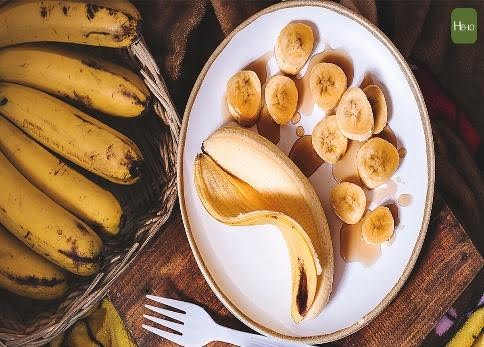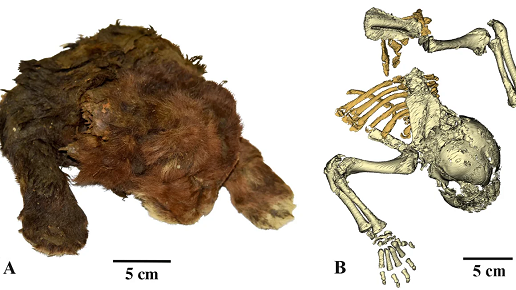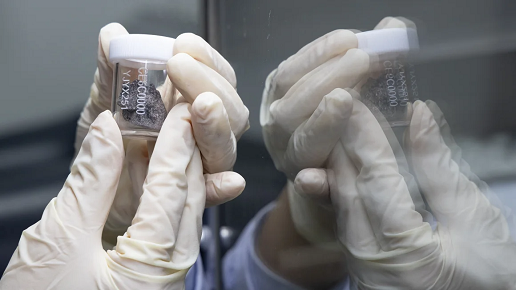When the baby can sit up with support and control head movements, they will show interest in food, looking at it and trying to grab it with their hands.

When introducing foods to babies, choose soft or mashed foods. (Image: Heho Health)
It is no longer recommended to delay giving allergenic foods. Previously, it was advised to delay introducing allergenic foods, but the 2020 U.S. Dietary Guidelines state there is no benefit in delaying. Once the baby can tolerate basic foods, gradually introduce potentially allergenic foods (such as milk, eggs, soy, wheat, peanuts, nuts, fish, and shellfish). Introduce in small amounts, adding only one new food at a time, and wait 3-5 days to ensure no adverse reactions before introducing another new food. Studies show that early introduction of allergenic foods helps prevent allergies; however, for high-risk groups for certain food allergies, it is recommended to introduce under medical evaluation or supervision.

Bananas are rich in fiber, potassium, vitamins B6 and C, and are beneficial for digestive system health. (Image: Heho Health)
List of Fruits for Baby’s First Foods When starting solids, choose soft or mashed foods to avoid choking. Introduce only one new food at a time to test for allergic reactions.
- Apple: Contains pectin and dietary fiber to promote bowel movements and prevent constipation. Rich in vitamins B, potassium, and zinc, it is one of the gentler complementary foods.
- Banana: Rich in fiber, potassium, vitamins B6, and C, it benefits digestive health.
- Dragon Fruit: Rich in vitamins C, E, potassium, polyphenols, anthocyanins, and dietary fiber, it helps prevent constipation.
- Golden Kiwi: High in vitamin C, it supports immune health and aids iron absorption.
- Avocado: Contains rich polyunsaturated fatty acids beneficial for cardiovascular health.
- Papaya: Contains beta-carotene and various vitamins beneficial for vision, immune system, and skin health.
These foods have suitable textures, are easy to digest, and are appropriate as complementary foods for babies.







